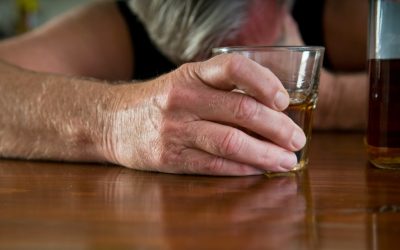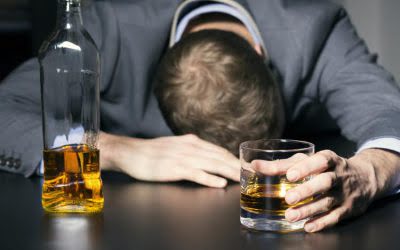Contents

However, if you are struggling with low T, one of the first things you should do is to completely eliminate alcohol, or cut back dramatically, and see if it impacts your T levels. Stopping unhealthy drinking habits or quitting altogether can help reverse the effects of alcohol on your hormone levels. Depending on your level of alcohol use, though, your body may take months or even years to recover. Most believe that at least a partial recovery is possible with abstinence from drinking. If you’re concerned that alcohol use could be affecting your testosterone levels, or if you’re experiencing symptoms of high or low testosterone, it’s never a bad idea to consult a healthcare provider. Once you know where you stand, you can determine what treatment options and lifestyle changes—such as moderating your alcohol use—could help you take steps toward better health.

The why do alcoholics liey men’s testosterone levels began dropping by the third day and reached similar levels to those of the men with alcoholism by the end of the month. Your hypothalamus releases a hormone called gonadotropin-releasing hormone , which acts on your anterior pituitary gland. Share on Pinterest Ginger may help increase testosterone levels and improve male fertility. Maybe you’ve been considering a vasectomy but haven’t quite finalized your decision yet because you’re worried about the side effects.

Medical research shows that disturbed sleep hinders production and depletes testosterone levels. Alcohol, beer in particular, contains high amounts of sugar, and it’s high in calories while providing very few nutrients. Excessive calories leads to weight gain and an increase in fat tissue, and fat often functions as an estrogen-producing organ. If we pause to consider how the routine consumption of a lot of alcohol affects our health, weight gain or the wear and tear on our livers are likely to come to mind.
Heavy alcohol drinkers are more likely to have poor testicular function compared to moderate drinkers. Men who drink heavily are more likely to experience erectile dysfunction, low testosterone levels, and low libido. It is believed that alcohol damages the Leydig cells in your testes, which are responsible for testosterone production. Alcohol may also interfere with the release of LH, FSH, and GnRH, which are the three glands needed for production.
The Impact of Alcohol on Men’s Sexual Health and Testosterone
Testosterone is a hormone present in both men and women but occurs in a much higher concentration in men. This hormone contributes primarily to bone and muscle growth and contributes to sex drive. As with most hormones, elevated and dampened levels will have physical and emotional impacts. If you believe that your drinking is affecting your testosterone levels or reproductive health, it’s a good idea to see a doctor. Even though this article focuses on testosterone in men’s health, women also produce a small amount of testosterone in their ovaries.

Heavy drinking or drinking consistently for a while will cause testosterone to drop, however. It can also help improve bone density, make it easier to build muscle mass, and help protect your cardiovascular system. One reason to get TRT may be chronic alcoholism, though you generally have to stop drinking first. Alcohol can interrupt hormone production in the endocrine system, including follicle-stimulating hormones and luteinizing hormones, which causes the testes to synthesize testosterone. Any substance that has an effect on testosterone production will also have an effect on sperm production and the male reproductive system. Acute drinking of low amounts of alcohol, drinking a small amount over a short period of time, can actually lead to an increase in testosterone in men and women.
Different Types of Alcohol and Testosterone
The body may stop producing the hormone due to a lack of sleep or exercise or even from a nutrient deficiency. When alcohol is consumed, alcohol plays a significant role when it comes to testosterone levels. 72 hours – This study also compared the short-term effects of alcohol intake in healthy male volunteers and in men who were chronic alcoholics . In the study, both sets of participants were given the equivalent of a pint of whiskey per day, over a period of thirty days. Even in the male participants who were not chronic drinkers, testosterone levels began to drop within 72 hours.

You may start to experience erectile dysfunction, loss of muscle mass, or infertility. Women also need some levels of testosterone although those levels are lower than in men. If women do not have the testosterone they need, they may start to experience low sex drive and brittle bones.
Generally, higher amounts of alcohol will have more impact on your hormone levels. Lower testosterone levels in men is a known side effect of alcohol use. Some testosterone replacement products are FDA-approved for men with low testosterone caused by drinking. It’s advised to refrain from drinking while using testosterone products to avoid worsening the problem. Further, testosterone is a Schedule III controlled substance with a risk of abuse, addiction and dependence.
Most Important Facts to Know About Testosterone
One study discovered testosterone levels were mildly higher in men after a three-week period of abstinence. But another small study suggested that frequent masturbation before strength training workouts could provide a prolonged boost in testosterone levels and assist with muscle growth, though more research is needed. Alcohol’s impact on hormones like testosterone depends onthe amount that you drink.
- For example, one study in male rats found that alcohol administration significantly lowered GnRH levels in the blood vessels connecting the hypothalamus to the pituitary gland (Ching et al. 1988).
- Read our editorial process to learn more about how we fact-check and keep our content accurate, reliable, and trustworthy.
- However, various lifestyle choices, includingalcohol abuse, can affect the male reproductive system and testosterone levels.
Disrupting these hormones disrupts the process of making and maturing sperm. Spermatogenic arrest refers to an interruption in the development of sperm that will lead to a lower concentration of sperm in semen. While the answer is true – red wine has been proven in studies to help you excrete more testosterone – it does come with a caveat, which we’ll explain later in this post. Boca Recovery Center is here to provide the best quality care in the treatment of drug and alcohol addiction. People with a significant alcohol habit can experience life-threatening seizures if they quit cold turkey.
Alcohol’s Effects on Sertoli Cells
Research has indicated that inhibition of the enzyme NOS by various substances can prevent the alcohol-induced decline in testosterone levels (Adams et al. 1993; Shi et al. 1998). This observation suggests that alcohol and NO may enhance each other’s ability to decrease testosterone production. Accordingly, future strategies aimed at preventing or reversing alcohol-induced suppression of testicular function may include NOS inhibition.
The other is the amount of alcohol, either low amounts or large amounts. It’s probably not shocking, but the longer you misuse booze, the greater the impact. “Heavy alcohol use can suppress your brain and testicular function and lower testosterone over time, as well as sperm counts,” says Calvert. First, studies continue to show that heavy doses of alcohol directly cause a decrease in testosterone production in men. To sum that up, a little bit of alcohol each week is probably fine—just don’t go overboard. The routine overconsumption of alcohol is what damages testosterone production and can lead to Low T levels.
Some research even shows that men who drink heavily before fertilization can put their future baby at risk for birth defects in the same way women can put a baby at risk by drinking when pregnant. Alcohol can have a very damaging effect on your sperm and fertility levels. The Sertoli cells in your testes are needed to produce healthy and mature sperm. Alcohol impairs the Sertoli cells and diminishes your ability to conceive.
Heavy drinking impacts the functioning of the Sertoli cells within the testes. These specialized cells are needed for sperm maturation, in which testosterone plays a huge role. Disruption to this vital sex hormone can negatively affect semen volume and sperm morphology and can even lead to infertility. Testosterone levels can drop as quickly as 30 minutes after drinking alcohol. When testosterone levels are thrown off by alcohol use, both men and women can experience a range of short-term side effects. Alcohol may impair the way the brain’s hormones function, potentially disrupting testosterone production and resulting in lower testosterone levels over time.
For example, testosterone can be metabolized to an estrogen called estradiol. Similarly, the immediate precursor of testosterone—androstenedione—can be converted into a less potent estrogen called estrone. This conversion process may be enhanced in men who regularly consume alcohol. Several studies found that some people with alcoholic liver disease have increased levels of estrogens in the blood (Van Thiel et al. 1974, 1978; Gordon et al. 1978). This increase does not appear to be caused by decreased estrogen breakdown and therefore must result from increased estrogen production (Gordon et al. 1978). Heavy, chronic drinking will decrease testosterone levels, impacting men’s sexual health.
The identification of those steps will lead to a more complete understanding of how alcohol disrupts pituitary function. «Hard liquor contains more alcohol than beer or wine, making it more dangerous for your liver,» continues Coleman. «A single shot of 80-proof hard liquor contains about 15 grams of alcohol and most shots contain even more alcohol than this.» Another alcoholic beverage also takes a considerable toll on your liver.
More than 90% of men with advanced liver disease also have low testosterone. Going into treatment for alcoholism not only prevents further testosterone impairment but can also save your liver. If you believe your drinking is affecting your testosterone levels or reproductive health, you need to see a doctor about it. Alcoholism treatment can reverse some of the damage alcohol did to your testosterone and improve your chances of good health. If a person does not want to quit drinking but desires to maintain a healthy testosterone level, then sustaining a healthy and nutritional diet can regulate the hormones in the body.
Alcohol has been shown to result in the production of less potent LH variants (Emanuele et al. 1986). Thus, alcohol’s deleterious effects on LH function are qualitative as well as quantitative. A related concern is whether alcohol affects LH release at the level of the pituitary and/or the hypothalamus. To address this issue, researchers have removed anterior pituitary glands from animals and grown them in vitro in the presence or absence of alcohol (Pohl et al. 1987; Emanuele et al. 1989). The results of those experiments suggest that alcohol can decrease LH secretion even from isolated pituitary glands, implying that alcohol lowers LH levels at least in part by acting directly on the pituitary. Disturbances in other hormonal systems also may contribute to the alcohol-induced suppression of testosterone levels.